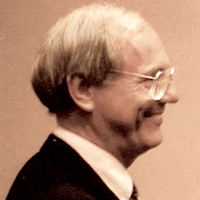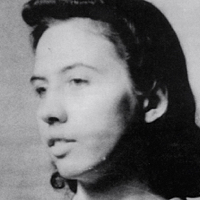Rascals case in brief
In the beginning, in 1989, more than 90 children at the Little Rascals Day Care Center in Edenton, North Carolina, accused a total of 20 adults with 429 instances of sexual abuse over a three-year period. It may have all begun with one parent’s complaint about punishment given her child.
Among the alleged perpetrators: the sheriff and mayor. But prosecutors would charge only Robin Byrum, Darlene Harris, Elizabeth “Betsy” Kelly, Robert “Bob” Kelly, Willard Scott Privott, Shelley Stone and Dawn Wilson – the Edenton 7.
Along with sodomy and beatings, allegations included a baby killed with a handgun, a child being hung upside down from a tree and being set on fire and countless other fantastic incidents involving spaceships, hot air balloons, pirate ships and trained sharks.
By the time prosecutors dropped the last charges in 1997, Little Rascals had become North Carolina’s longest and most costly criminal trial. Prosecutors kept defendants jailed in hopes at least one would turn against their supposed co-conspirators. Remarkably, none did. Another shameful record: Five defendants had to wait longer to face their accusers in court than anyone else in North Carolina history.
Between 1991 and 1997, Ofra Bikel produced three extraordinary episodes on the Little Rascals case for the PBS series “Frontline.” Although “Innocence Lost” did not deter prosecutors, it exposed their tactics and fostered nationwide skepticism and dismay.
With each passing year, the absurdity of the Little Rascals charges has become more obvious. But no admission of error has ever come from prosecutors, police, interviewers or parents. This site is devoted to the issues raised by this case.
On Facebook
Click for earlier Facebook posts archived on this site
Click to go to
Today’s random selection from the Little Rascals Day Care archives….
Click for earlier Facebook posts archived on this site
Click to go to
Today’s random selection from the Little Rascals Day Care archives….
Psychiatrist’s theory bolstered day-care prosecutions
Feb. 2, 2019
First of two parts
The name of Dr. Roland Summit, key supporter of the McMartin Preschool prosecution, no longer resonates in psychiatry, but the “child sexual abuse syndrome” he conjured up did a lifetime’s worth of damage to its countless victims.

theawarenesscenter.org
Dr. Roland Summit
As described by Debbie Nathan (Village Voice, Jan. 12, 1990), “[Summit’s] theory about incest… argues that if there is evidence of sex abuse and a child denies it, this is only further proof that it happened and a therapist should use any means necessary to help the child talk…. If they later recant, that means they are under family pressure to protect the father and their turnabout is further proof of the crime.
“So no matter how much coercion was used to get an accusation and no matter if a child later retracted it, once Summit’s incest theory was applied, a charge of abuse became irrefutable. Child protection workers ignored the fact that this logic had little to do with day care. After all, why would children staunchly defend abuse to protect an adult who wasn’t part of the family? And if they had been so brutally attacked at school, why wouldn’t they tell their parents?
“Therapists and investigators came up with all sorts of rationales. One was the teachers threatened them by slaughtering animals and warning that the same thing would happen to their parents if they told….”
Summit wasn’t among the expert witnesses in the Little Rascals Day Care case, but his supposed syndrome warped therapists’ interpretation of every child-witness interview. And those imaginary “threatened parents” showed up in this 1995 open letter from Little Rascals parents: “Many [children are now] old enough to realize that Bob Kelly can’t work his threatened evil to kill their families.”
Next: Collusion by psychiatrist and patient
![]()
How did prosecutors let go ‘16 psychotic, baby-killing pedophiles’?

opineseason.wordpress.com
Brian Lambert
June 3, 2017
How did prosecutors let go ‘16 psychotic, baby-killing pedophiles’?
“An early indicator of the bizarre and fickle nature of the [Little Rascals] prosecution was that in all, 23 Edenton residents were named by the children (via counseling) as having engaged in essentially the same abominable acts as those indicted.
“Yet the county DA’s office arbitrarily pared the case to seven, leaving, one assumes, 16 psychotic, baby-killing pedophiles to walk freely on the streets of their small city….”
– From “A ‘Frontline’ documentary on child abuse hysteria shows how good TV can be” by Brian Lambert in the Saint Paul Pioneer Press (May 27, 1997)
Among the lucky 16: the mayor and sheriff.
![]()
Imprisonment ‘without having to prove a thing’
Nov. 23, 2011
“Finally, after eight years, the Little Rascals case is over. We can consign to history what has to be the most bizarre and disturbing episode in the annals of North Carolina law…..
“Never has the state devoted such resources to wrecking lives with such flimsy evidence and unconscionable delays.
“As a case history of mass hysteria, the Edenton story will enrich textbooks for generations. As a cautionary tale of what can happen when otherwise sensible people come under the spell of self-styled victim advocates, one can only hope the memory of Little Rascals will help others stop the next case before it gets out of hand.
“The state’s most effective weapon… was not evidence, but time. By holding (defendants) behind bars month after month, the state managed to inflict enormous punishment… without having to prove a thing.
“As fiction, the Little Rascals story would have strained the combined imaginations of Charles Dickens and Stephen King. As news, it is a chilling example of a judicial system that was unchecked by common sense or common decency.”
– Editorial in the Greensboro News & Record, May 28, 1997
When Gladstone (or whoever) first posited that “Justice delayed is justice denied,” could he have envisioned such a calculated demonstration?
‘Sybil’ came clean, but psychiatrist wasn’t interested

startribune.com
Shirley Ardell Mason
“[Shirley Ardell] Mason was the real person behind the 1970s best seller ‘Sybil,’ which sold 6 million copies with its riveting account of an abused woman inhabited by 16 different personalities. Sally Field won an Emmy for her 1976 portrayal seen by 20 percent of the nation.
“In the process, Mason popularized the condition known as multiple personality disorder – a trendy 1970s diagnosis. The number of cases mushroomed from about 75 to 40,000 after ‘Sybil’ was published….
“In the trove of records kept on her case, Mason actually admitted making up the many personalities.
“ ‘I do not really have any multiple personalities,’ she wrote in a letter to her psychiatrist. ‘I do not even have a “double.” … I am all of them. I have been lying in my pretense of them.’
“Her doctor chalked it up to a defensive ploy to avoid deeper therapy….”
– From “The Minnesotan behind Sybil, one of America’s most famous psychiatric patients”
by Curt Brown in the Minneapolis Star Tribune (Feb. 25)
![]()











0 CommentsComment on Facebook